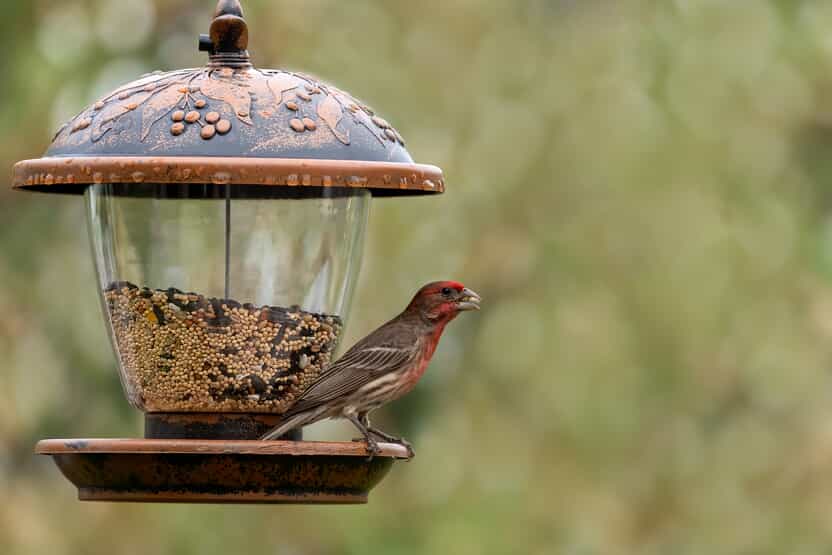February is National Bird Feeding Month and while it’s a great reminder to feed our fine-feathered friends during these colder months when food is scarce, it’s also a great reminder that feeding the birds and watching them can really have some wonderful health benefits for your elderly loved one as well.
While going out to a local park and watching birds has physical and mental health benefits, just filling up that bird feeder in the backyard, grabbing a pair of binoculars and enjoying the birds that come to visit your home can have some wonderful mental health benefits for your senior.
Here are some benefits to bird watching.
It provides glimpses into the amazing.
Seeing a rare bird swoop in for a visit, or hearing a beautiful songbird sing can lift the spirit in a way that not too many other things can. This endorphin rush can provide lasting feelings of joy and contentment.
Winter months can give anyone a case of the doldrums and seeing birds in their beautiful colors can remind a tired heart that spring is right around the corner.
It brings mindfulness.
If your loved one is looking at birds, it can help reduce her blood pressure and distract her mind from negative thoughts. Whether she’s watching alone or with her home care assistance provider, she’ll find that focusing on the birds in her yard will help her relax and enjoy the moment instead of worrying about daily stresses.
It gives purpose.
Your loved one may feel like no one needs her anymore, but if she’s set up some bird feeders for the local birds during the cold months, she may come to realize those birds need her to stay full and warm all winter long. While it might seem small to some, it can be just what your loved one needs to get up each day, get dressed, and head outside to fill the feeders. If she’s physically unable, a home care assistance provider can help with the more physical part of keeping those feeders full, while still having your loved one feel the responsibility of it all.
She can also join a local bird-watching group that records the birds in the area for research into migration habits and bird populations and that role may be the confidence booster she’s been looking for.
It provides a challenge.
Bird watching keeps the mind active. While it’s relaxing, your loved one’s brain and eyes are working hard together to spot elusive birds, remember what they are, track them in her book, and listen to songs that they make. She might even watch the birds long enough that she’ll be able to distinguish one from the other based on coloration or size. These simple mental tasks keep her brain sharp.
It opens up social engagement.
Find another bird watcher and your loved one may find a new friend. It can be a home care assistance person who sits with her by the window and watches alongside or it might be someone on a social media account like Facebook, where they can share what they see each day.
From reducing stress levels to providing moments of awe, the health benefits of bird watching are as plentiful as the birds out there.

